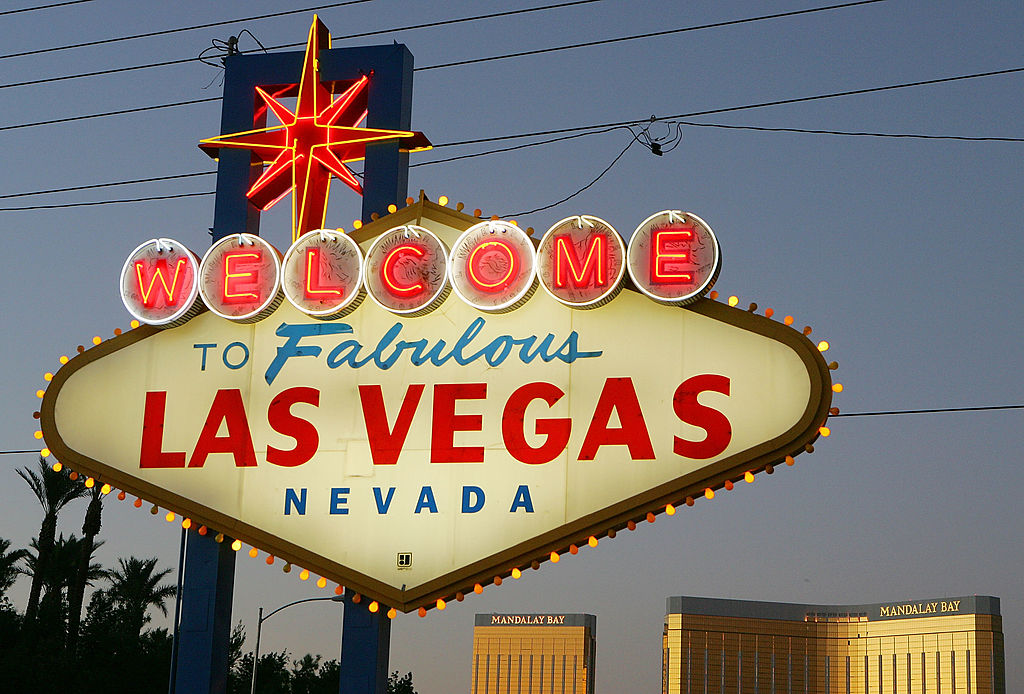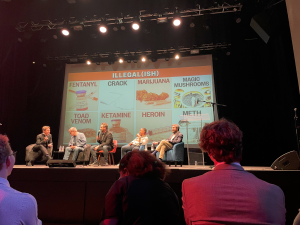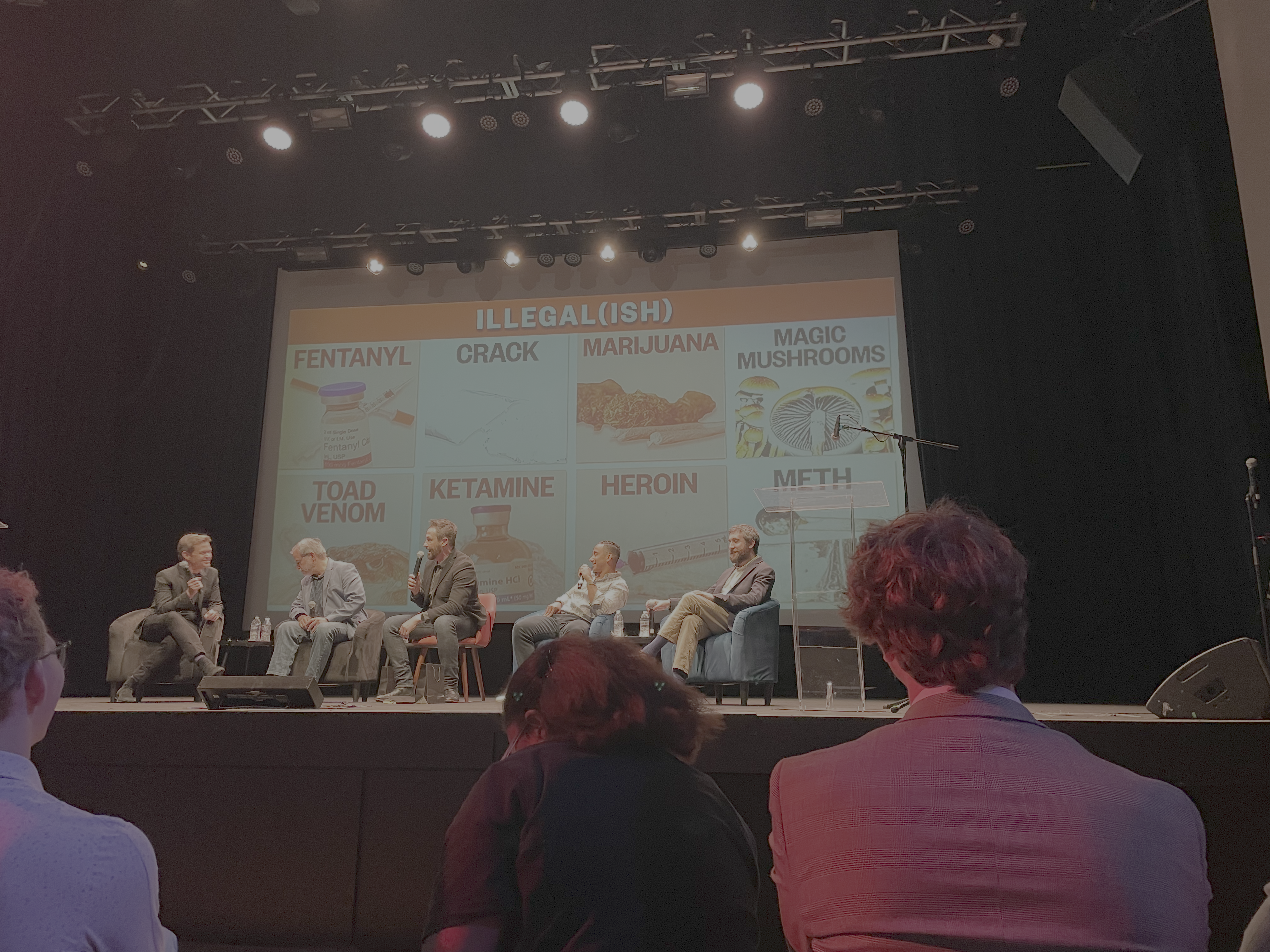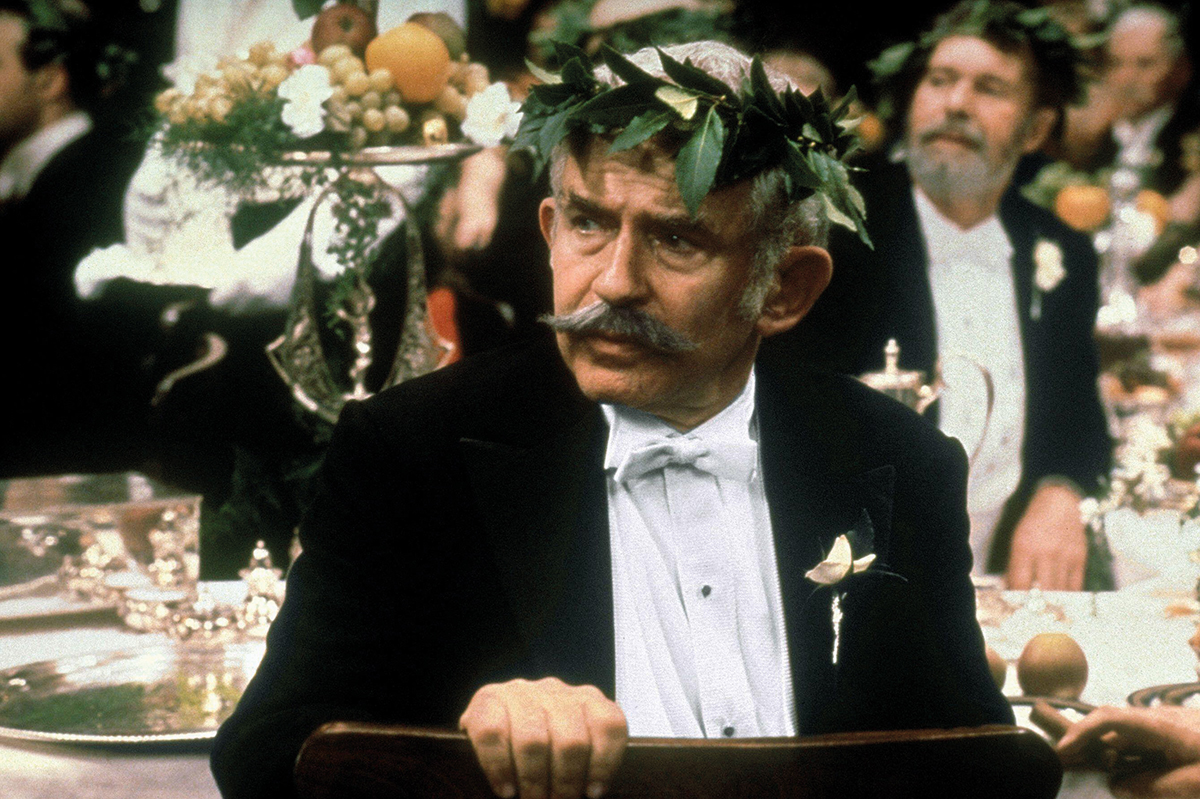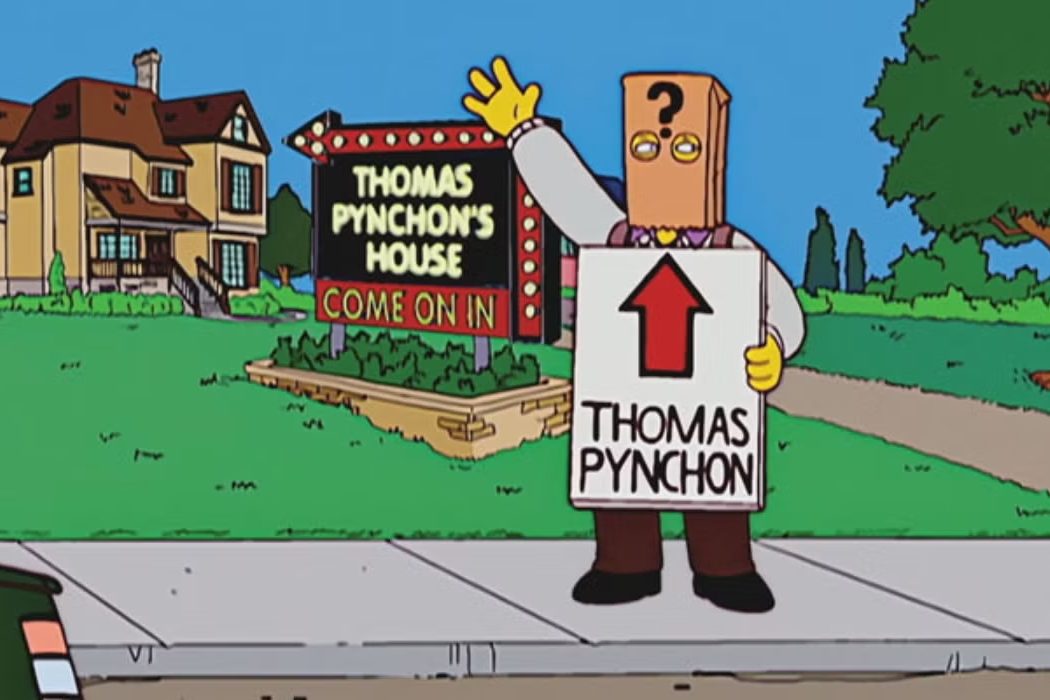God bless Hunter S. Thompson’s editors. Imagine paying someone a handsome amount of money to cover an off-road race and getting thousands of words of rambling prose that have a great deal more to do with drugs than with cars. It was a good time to be a writer, I suppose.
The manuscript that became Fear and Loathing in Las Vegas appeared in two installments in Rolling Stone in November 1971. (Sports Illustrated passed.) Somehow, this rabid work of “gonzo journalism” spawned a book, a film, a graphic novel and a host of imitators, catapulting Thompson to the higher realms of fame. He never recovered from his own success.
Fear and Loathing is easily summarized. Raoul Duke (Thompson) and his friend Dr. Gonzo (ill-fated Mexican-American attorney Oscar Acosta) drive to Las Vegas on some uninspiring journalistic mission and get furiously, dangerously, jubilantly high. The appeal of the book to fourteen-year-old boys is explained right there.
Its broader relevance is harder to express. The hectic energy of Thompson’s prose, with its fervid adjectives and breakneck pace, keeps the pages turning. Its humor is subtle — not a word one might associate with Hunter S. Thompson, but apt nonetheless. What makes Thompson an author for our age, though, is paranoia. It seethes and boils through Fear and Loathing and everything else he wrote. The Rum Diary, a far more lucid novel which he wrote years earlier but which lay unpublished until decades afterward, practically sweats with dread, suspicion and distrust. By Fear and Loathing the drugs had kicked in and the dreams had died.
There was an element of projection, or drug-fueled delusion, in how weird, venomous and deranged Thompson found everyone. What he did recognize, with unarguable incisiveness, was how the strained bourgeois values of the Fifties and the starry-eyed progressiveness of the Sixties were dissolving into a miasma of fear and rage amid war, political violence, conspiracies — both real and imagined — and, yes, addiction.
Thompson was an ardent foe of puritanism and authoritarianism. He once ran for mayor in Aspen, Colorado, against a firm Republican, shaving his head so he could refer critically to “my long-haired opponent.” Yet he was also dismissive of sentimental, optimistic “acid freaks” who sought an easy, jolly route to “consciousness expansion.”
A generation of permanent cripples, failed seekers, who never understood the essential old-mystic fallacy of the Acid Culture: the desperate assumption that somebody… or at least some force — is tending the light at the end of the tunnel…
In a famous speech in Fear and Loathing, Thompson discusses the sense, prevalent in the Sixties, that utopian “energy” would “simply prevail”:
We had all the momentum; we were riding the crest of a high and beautiful wave.
“With the right kind of eyes,” Thompson continues, “you can almost see the high-water mark — that place where the wave finally broke and rolled back.”
We never had that kind of grandiose optimism, but the Nineties possessed something like it. There was a sense that history was carrying us placidly and irreversibly toward richer and more peaceful places. As its stream grows choppier, and our surroundings darken, paranoia sets in.
What would Thompson make of our times? I am not trying to pull off the cheap trick of commandeering a long-dead author for my political tribe. Thompson was politically incorrect, but he was no more “right-wing” than he was Italian. He was a drug-popping anarchist who thought that Richard Nixon was akin to Satan. Would he have voted for Biden or Trump? I suspect he would have preferred to kill himself (for the second time) than vote for either.
Still, I know that he would get a kick out of the twitching, hissing derangement of our times: the Lin Woods and QAnons of the right, with their fantasies of Biblically infused insurrection, and the progressives who keep their children under house arrest to protect them from an illness which poses minimal risk to young and healthy people. He would be fascinated with social media, that boiling pot of conflict and neuroses. From Fear and Loathing, and from his earlier essay “The Kentucky Derby is Decadent and Depraved,” we can tell that, for all of Thompson’s diverse and rich character flaws, he was a world-class troll. If you had a scab then he had a fingernail.
His style was inimitable, his way of life self-destructive, like so many earlier, more conventional American writers — Scott Fitzgerald, whose work Thompson loved, or Kerouac, whose injunction to “burn, burn, burn like fabulous, yellow roman candles exploding like spiders across the stars” Thompson surely emulated. That energy is worth aspiring to.
Gonzo journalism, with its roots in what one might generously call hyperreality or ungenerously call “making shit up,” has defects. It is innately dishonest. It trades in attitudes and atmosphere more than argument. But these can also be its strengths. All the hot impulses of our species, and the blurring between fact and fiction that our politics and media inevitably produce, are impossible to portray in solely rational terms without desiccating into mere intellect.
“When the going gets weird,” wrote Thompson, “the weird turn pro.” Admittedly, this has long been a rallying cry for people whose idea of “weird” is mildly eccentric dress sense and an addictive personality. But when one has a sense of the surreal, one also becomes a valuable observer of its symptoms. And Thompson, in all his ragged, ornery glory, remains a dyspeptic prophet of the dark side of the American dream, coughing and swearing and snorting his way to immortality.
This article was originally published in The Spectator’s March 2022 World edition.



